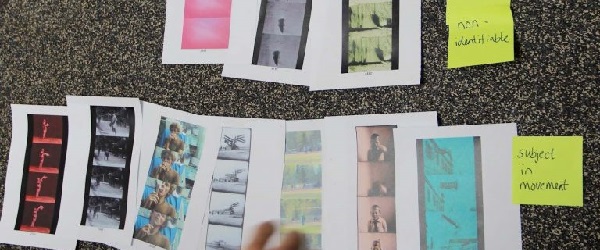EUscreen is excited to share the news about the upcoming conference Sensory Moving Image Archives: Visualization, Exploration and Reuse of Moving Image Data which will be hosted at the University of Amsterdam on 25-26 February 2019.
ABOUT
The international two-day symposium comes out of the research project The Sensory Moving Image Archive: Boosting Creative Reuse for Artistic Practice and Research (SEMIA, 2017-2019). Working with diverse archival material from Eye Filmmuseum and the Netherlands Institute for Sound and Vision, SEMIA develops alternative ways of exploring moving image archives by analyzing data concerning visual features – such as colour, movement and shape. To achieve this, SEMIA has trained deep-learning networks for extracting sensory data from moving images and developed an interface for exploring the results. The project’s outcomes will support alternative ways of accessing collections and facilitate new forms of reuse based on sensory data.
In pursuing these goals, the project seeks to challenge the limitations of traditional text-based search. In recent years, three groups in particular have expressed a need for this – and it is these groups the symposium targets. They are scholars and scientists (including media historians, museum and archival scholars, digital humanities scholars and computer scientists), artists working with moving image or cultural heritage collections, and archivists (including media archivists and cultural heritage professionals more broadly). Taking SEMIA’s results as its starting point and test case, the symposium offers a platform for exchange between perspectives from those different groups, and the fields they represent. The program will consist of invited presentations and papers accepted through an open call. Scholars, professionals and practitioners from all groups are strongly encouraged to submit proposals.
CALL FOR PAPERS
The programme committee for the symposium invites contributions in the following areas (but will also consider other relevant topics):
MEDIA HISTORIOGRAPHY AND DIGITAL HUMANITIES
– Data-driven visual methodologies for the analysis of visual culture (Rose 2013), in different areas of the humanities
– Examples of the exploration of moving image and cultural heritage data, for instance in the lineage of Exploratory Data Analysis (Tukey 1977) or Cultural Analytics (Manovich 2009)
– Approaches in film studies engaging with data visualization as a form of deformative criticism (Ferguson 2017) or new cinephilia (Habib 2015)
HERITAGE STUDIES
– Interfaces for heritage collections that challenge text-based search and retrieval, for instance “generous” interfaces (Whitelaw 2015) or forms of humanistic interface design (Drucker 2013)
– Processes for and experiences in designing exploratory interfaces for heritage collections, specifically prototyping and user testing
COMPUTER SCIENCE
– Deep-learning and/or feature engineering for visual analysis of moving images
– Computer science approaches tailored to the analysis of subjective attribute data (rather than object recognition or scenes)
MEDIA ART
– Media art projects and practice-based research exploring the affordances of non-evidentiary algorithmic approaches to moving image data analysis and visualization
– Practices of found footage, expanded cinema and moving image archive appropriation involving data analysis and visualization
MEDIA ARCHIVING
– The integration of computer-generated (sensory) moving image data in media asset management systems and/or moving image archive databases
– Reuse of (sensory) moving image data for TV production and in journalism
Submission guidelines:
Please submit an abstract of 300 words and a short bio of 50 words, in pdf format, by emailing c.g.olesen@uva.nl before 3 December 2018.
ABOUT THE CONFERENCE:
Date: 25-26 February, 2019
Location: Doelenzaal, University Library, University of Amsterdam, Singel 425, Amsterdam, the Netherlands.
Registration: Entrance is free but seats are limited, so please register by emailing c.g.olesen@uva.nl.
Keep an eye on our events page for more details.



